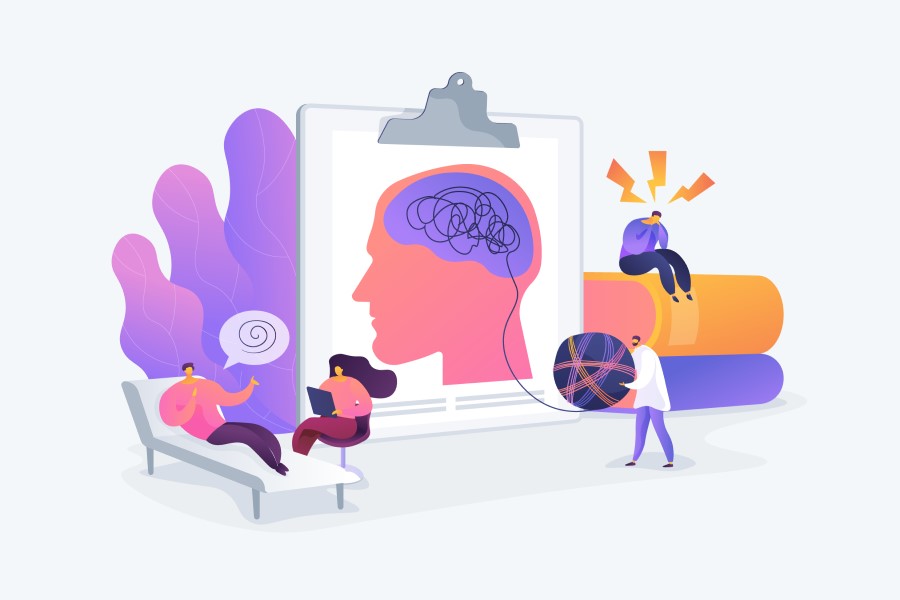Workplace counselling: EAPA considers link between mental wellbeing and organisational resilience

Challenging misconceptions – the importance of evidence-based wellbeing and why HR, reward and wellbeing practitioners need clinical experts is the theme for one of the panel discussions during the virtual Employee Wellbeing Congress. The panel includes health and wellbeing experts from Johnson & Johnson, BP, Rolls-Royce and GSK.
New research undertaken by the Institute for Employment Studies (IES) – commissioned by the Employee Assistance Professionals Association (EAPA) and the British Association for Counselling and Psychotherapy (BACP) – explores the effectiveness of workplace counselling for this new world of work: the urgent need to see employee mental wellbeing as a platform for organisational resilience.
Demonstrating the Effectiveness of Workplace Counselling: Reviewing the evidence for wellbeing and cost-effectiveness outcomes looks to get to the heart of the issue. It considers the role for workplace counselling, evidence for how it works and how its impact can be maximised for a post-COVID-19 future. It is based on a review of recent evidence and an expert roundtable to collect the views of experienced practitioners.
Overall, the findings confirm that workplace counselling has a huge part to play in helping employees. The literature and roundtable evidence suggest that, if implemented and utilised effectively, workplace counselling has important, positive effects for both employees and organisations that are committed to providing support. Counselling can lead to the minimising of sickness absence, reduced presenteeism and maximising job retention and vocational rehabilitation.
The study points to the evidence of effectiveness internationally: such as the Mellor-Clark et al study from 2013 which showed that with a sample size of more than 28,000 clients, EAPs delivered quicker access to counselling, had the need for fewer sessions and yet achieved comparable rates of recovery and improvement when compared with NHS benchmarks. In the wake of the anxiety and uncertainty for employees caused by the pandemic, the pressures on job security and working patterns, “workplace counselling could be a simple yet practical solution for providing support to their employees,” according to research co-author, Zofia Bajorek at the IES.
A recent paper in The Lancet highlights the global concern among mental health professionals over the longer-term implications of the pandemic lockdown period and social isolation on both vulnerable groups and the population as a whole. The authors concluded that most of all there was an urgent need for data on what’s been happening, what can be learnt from the experience for re-making mental health support.
Similarly, a key finding from the IES report has been the need to know much more. There needs to be more collaboration among stakeholders, employers in particular, sharing available data on how counselling services are being used and why. There also needs to be greater evaluation of the impact and value of counselling and the different forms of ROI, as well as which models of workplace counselling work best for different groups of employees. At the same time the report argues for the need for employer and employee education about the benefits of workplace counselling for a range of clients and in different employment settings.
For the future, the report argues there is a need for standardised definitions of terms like ‘utilisation’ as the basis for more reliable comparisons between providers, and to establish a minimum reporting system or dataset. Through this standardisation service monitoring, outcome evaluation and benchmark comparisons across services can be made.
Issues over how services might be adapted to meet future needs are also highlighted: how increased demand for workplace counselling services will mean more counsellors with a workplace focus will need to be trained to ensure an adequate supply of skills for the market – this is particularly important given the current shortage of nurses and doctor trainees entering occupational health.
Qualified workplace counsellors, the authors argue, could play an enhanced role in supporting workplace health interventions by collaborating with other professionals, such as physiotherapists and occupational therapists. Access to high quality, trained workplace counsellors through their employers will be crucial to improving the national picture of mental health support, providing much-needed support to NHS services.
From being a ‘nice-to-have’ service, the ‘right thing’ to offer employees, EAPs and other forms of workplace counselling have become a fundamental part of an organisation’s risk and resilience planning. And so there has to be more clarity and certainty on what works, and that will mean putting evaluation at the heart of a wellbeing strategy.
The author is Andrew Kinder, vice chair of EAPA (UK).
View the full report: Demonstrating the effectiveness of workplace counselling: Reviewing the evidence for wellbeing and cost- effectiveness outcomes by Zofia Bajorek and Stephen Bevan of IES.






